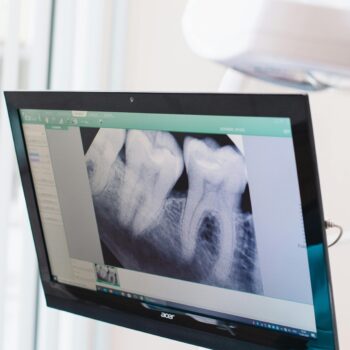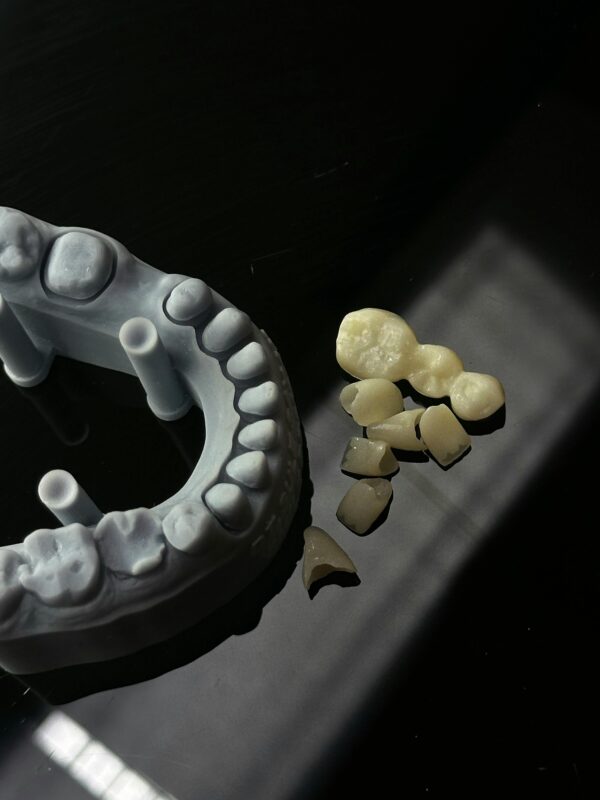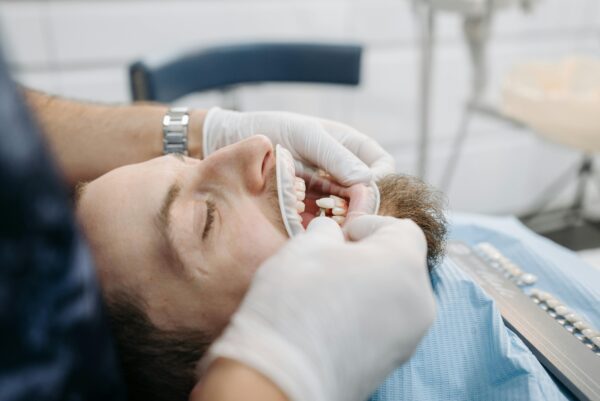What is root canal treatment?
Root canal treatment (endodontic treatment) fixes problems with a tooth’s soft core or ‘dental pulp’. Dental pulp lies within the tooth, extending from the crown of the tooth to the tip of the root. It contains nerves, connective tissue and blood and lymph vessels which provide oxygen, nutrients and feeling to the tooth. It also regulates the growth and development of the tooth during childhood.
Root canal treatment involves removing inflamed, diseased or dead pulp from the pulp chamber and root canals of a tooth and replacing it with a filling in order to prevent the tooth from being extracted.
When is root canal treatment necessary?
Treatment is recommended in cases of:
- infection caused by deep decay or a large filling
- advanced gum disease
- trauma, such as a blow to a tooth or constant striking of a tooth by teeth on the opposite jaw
- a fracture in the tooth allowing bacteria to enter
- teeth grinding

The symptoms of damaged, diseased or inflamed dental pulp requiring root canal treatment include:
- pain and pressure at the site of the tooth
- hot and cold sensitivity
- mobility of the tooth
- swelling and tenderness in the gums surrounding the tooth
- discolouration or darkening of the tooth
- the presence of pus at the site of the tooth
- facial swelling
A diagnosis of the need for root canal treatment is made on the basis of symptoms reported by the patient, an examination of the tooth and x-rays of the tooth.
What are the benefits?
The main aim and benefit of root canal treatment are to save a tooth that would otherwise be extracted. Retaining natural teeth is considered the best solution from a dental perspective and prevents the need for replacement teeth, which can be time-consuming, painful and costly.
Considerations
If a tooth requiring root canal treatment is left untreated, widespread gum and connective tissue infection may result as well as loss of the tooth. It is advisable to visit your dentist at the first sign of any of the above-mentioned symptoms associated with damaged, diseased or inflamed dental pulp.






